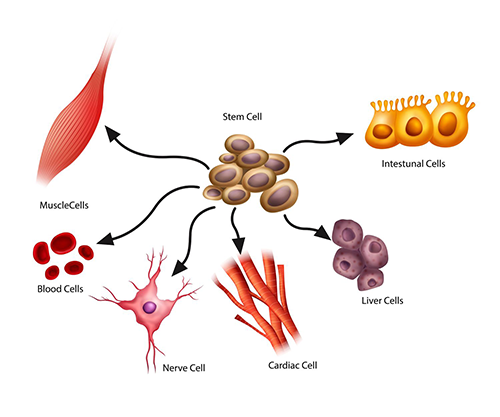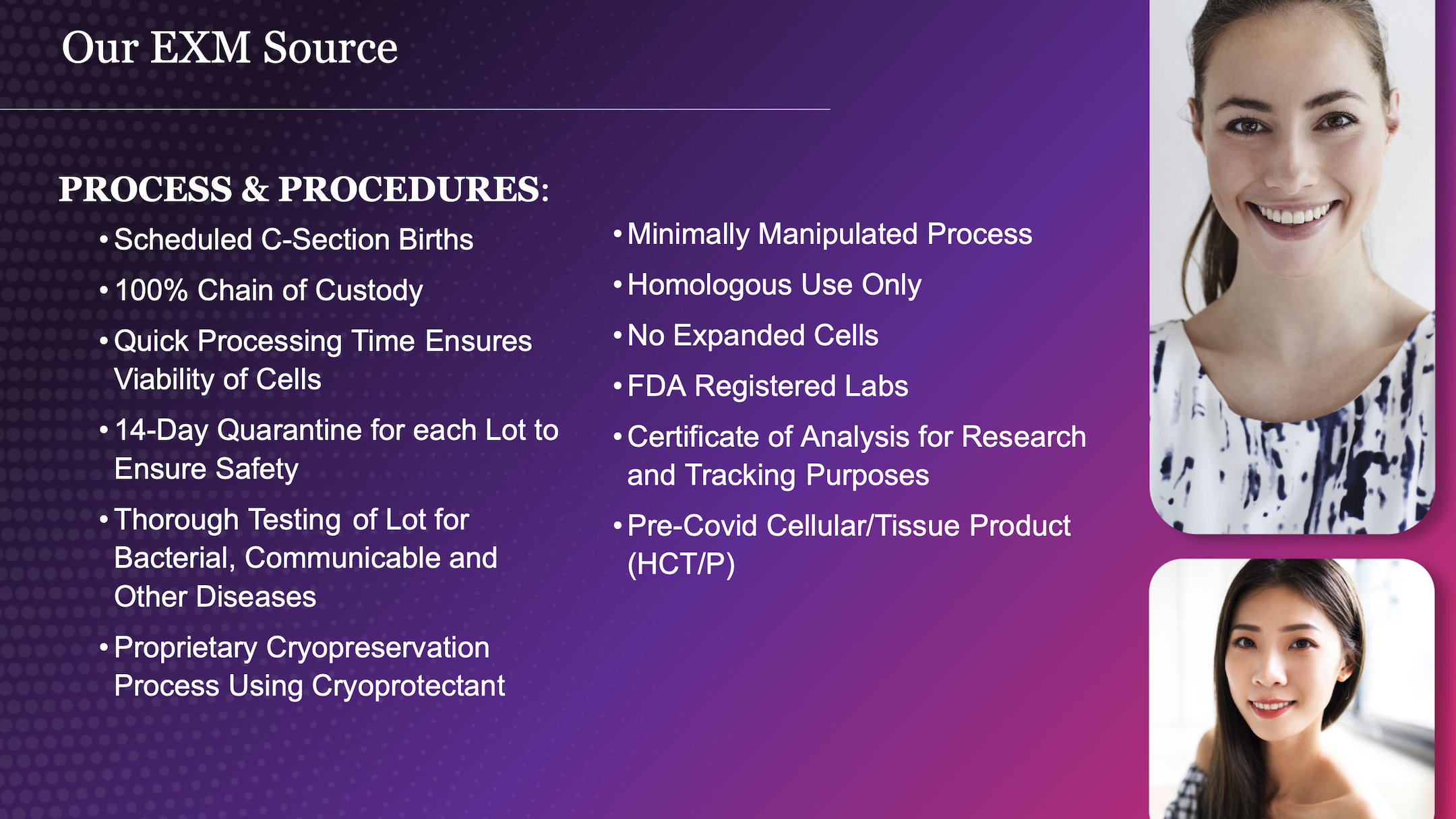Stem Cells
Stem cell therapy is a form of regenerative medicine that uses the body’s own natural repair mechanisms to help restore or improve function in damaged tissues, organs, or systems. Instead of relying solely on drugs or surgery, stem cell therapy focuses on stimulating repair, regeneration, and healing at the cellular level.
Here’s a clear breakdown:
What Are Stem Cells?
Stem cells are unique cells in the body with two key characteristics:
- Self-Renewal – They can divide and make copies of themselves over long periods.
- Differentiation – They have the ability to transform into specialized cell types, such as muscle, nerve, cartilage, or bone cells, depending on the body’s needs.
Because of these properties, stem cells play a crucial role in growth, repair, and regeneration of tissues throughout the body.

Types We Use in Our Clinic
- Mesenchymal Stem Cells (MSCs): Found in bone marrow, fat (adipose tissue), and umbilical cord tissue. They are widely used in research and clinical applications because of their potential anti-inflammatory and tissue-repair properties.
- MSC stem cells, or Mesenchymal Stem Cells, are a type of adult stem cell found in various tissues such as bone marrow, fat (adipose tissue), umbilical cord tissue, and even dental pulp.
- They are widely used in regenerative medicine because of their unique healing properties.
-
The Donor Requirements for OUR MSC's
- Healthy Informed Donors (18-26 age)
- Comprehensive Medical and Social History Screening of Donor
- Pre-Screened Mother & Father
(3 generations) - NO Smoking, NO Alcohol, NO Tattoos,
NO Drugs, NO Vaping - FDA Approved Blood Testing
- Testing for Bloodborne Pathogens, Heritable and Non-Heritable Conditions
- Healthy C-Section Births Only
- Pre-Covid Birth Product
Our Process & Procedures

Key Characteristics of MSCs
- Multipotent – MSCs can differentiate into several types of cells, including:
- Bone cells (osteocytes)
- Cartilage cells (chondrocytes)
- Fat cells (adipocytes)
- Tendon and ligament cells
- Anti-Inflammatory – MSCs release molecules that help reduce inflammation, which is especially important for conditions like arthritis, neuropathy, and autoimmune disorders.
- Tissue Repair & Regeneration – MSCs can stimulate repair of damaged tissues, promote new blood vessel formation, and support the healing process.
- Immunomodulatory – MSCs can modulate the immune system, helping reduce overactive immune responses that contribute to chronic inflammation or autoimmune disease.
How MSCs Work in Therapy
- Direct Differentiation – They can transform into needed cell types to replace damaged tissue.
- Paracrine Effects – MSCs release growth factors and signaling molecules (including exosomes) that promote healing, reduce inflammation, and recruit other cells to repair damaged tissue.
- Immune Support – MSCs help regulate immune system activity, creating an environment that supports tissue repair.
Common Uses of MSC Therapy
MSC therapies are being studied and used for:
- Orthopedic conditions (joint pain, cartilage damage, tendon injuries)
- Neurological disorders (stroke, neuropathy, multiple sclerosis)
- Anti-aging and wellness
- Cardiovascular support
- Skin and facial rejuvenation
Key Takeaway
MSC stem cells are versatile, powerful cells that help reduce inflammation, repair damaged tissues, and support overall healing—making them a cornerstone of regenerative medicine.
Areas of Research and Application
Stem cell therapy is being studied for a wide range of conditions, such as:
- Orthopedic issues (arthritis, joint injuries, back pain)
- Neurological conditions (Parkinson’s, multiple sclerosis, traumatic brain injury, stroke)
- Cardiovascular disease (improving blood flow, repairing heart tissue)
- Autoimmune diseases (modulating immune response)
- Anti-aging & wellness applications (skin rejuvenation, hair restoration)
Important Note
While some stem cell therapies (like bone marrow transplants) are FDA-approved, many regenerative uses are still considered investigational. Clinics may offer them, but results vary and treatments may not be guaranteed. Patients are encouraged to consult with qualified providers and review clinical evidence before pursuing therapy.
